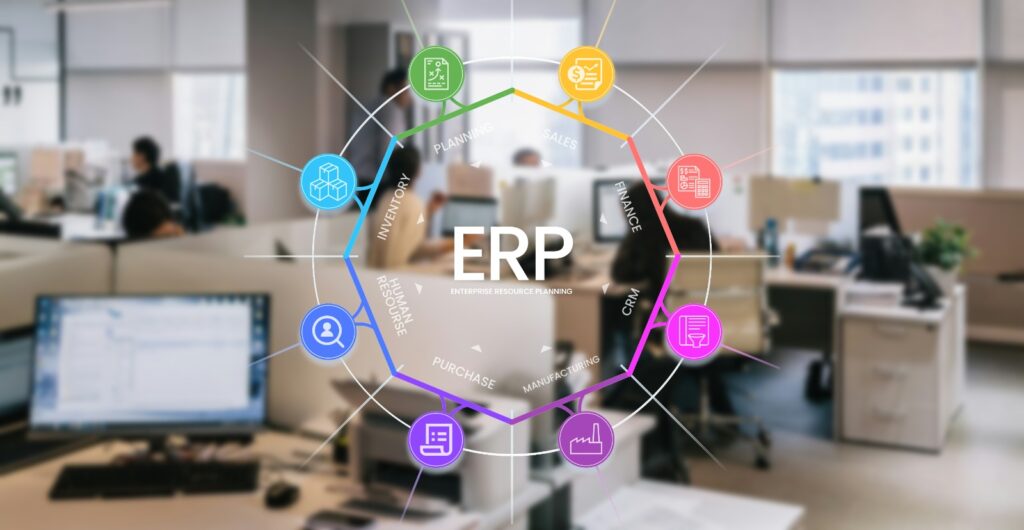ERP System: The Comprehensive Solution for Effective Enterprise Management

ERP System: The Comprehensive Solution for Effective Enterprise Management
Discover ERP Systems and How They Can Enhance Your Company’s Efficiency, Reduce Costs, and Improve Communication. Read on to learn how to choose the right system and implement it successfully.
ERP (Enterprise Resource Planning) systems have become one of the most effective tools for managing modern businesses. Regardless of your company’s size, an ERP system can help improve efficiency, reduce costs, and enhance communication between different teams. In this article, we’ll explore what an ERP system is, how it works, and the benefits it can offer your company.
2. What is an ERP System?
An ERP (Enterprise Resource Planning) system is software that helps companies integrate all their key business processes into a single, unified system. This integration provides a comprehensive and unified view of data and processes across the organization, making decision-making more efficient and informed.
How Can an ERP System Improve Your Company’s Operations?
An ERP system enables companies to:
- Efficiently Manage Resources: By integrating various departments such as finance, HR, and inventory.
- Access Real-Time Data: Allowing for informed decisions based on accurate data.
- Reduce Manual Processes: By automating tasks, reducing errors, and increasing efficiency.
3. How Does an ERP System Work?
An ERP system works by collecting and unifying data from all departments within the company into a central database. This integration allows for seamless information exchange between different departments and real-time data analysis.
Steps in ERP Operation:
- Data Collection: Data is collected from all departments.
- Integration: The data is integrated into a single system.
- Reporting and Analysis: The system provides accurate reports and analyses that facilitate decision-making.

4. Key Benefits of Using an ERP System
4.1 Improving Efficiency
- Process Automation: An ERP system helps automate various business processes.
- Better Resource Management: It allows for more efficient resource allocation and usage.
4.2 Reducing Costs
- Inventory Management: The system simplifies inventory monitoring, helping to avoid shortages or surpluses.
- Improving Processes: Reducing waste and increasing productivity.
4.3 Enhancing Communication and Collaboration
- Unifying Processes: The system integrates and unifies different processes in one place.
- Improving Interdepartmental Communication: Facilitates the flow of information between different departments.
5. How to Choose the Right ERP System for Your Company
Choosing the right system is a critical step in ensuring your company achieves its goals.
Tips for Choosing an ERP System:
- Identify Company Needs: Understand the core processes that need automation.
- Compare Available Options: Compare features, costs, and flexibility.
- Test the System: Try the system before making a final decision.
6. Best Practices for Successfully Implementing an ERP System
To successfully implement an ERP system, certain essential steps should be followed:
- Good Planning: Develop a detailed plan that includes objectives and required resources.
- Continuous Training: Train employees on using the new system.
- Monitoring and Evaluation: Monitor the system’s performance after implementation and make necessary adjustments.
8. Conclusion
An ERP system is not just a tool for improving business processes but a strategic solution that helps companies grow and evolve. By choosing the right system and implementing it correctly, your company can benefit from all the features this system offers to achieve efficiency and effectiveness in all its operations
